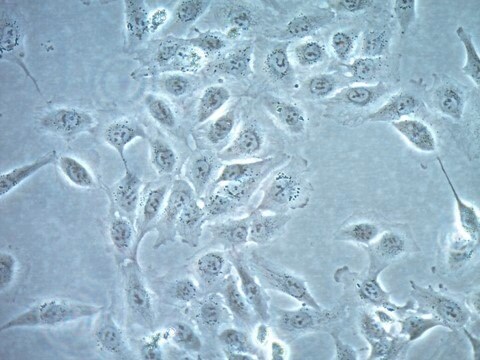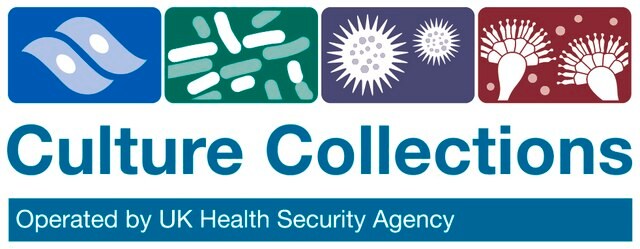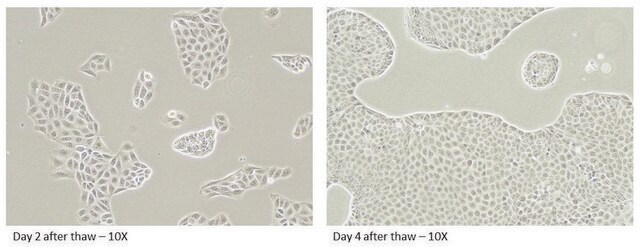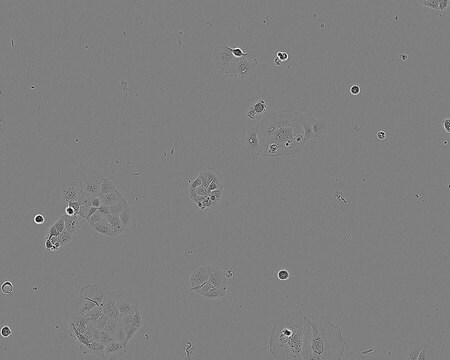Recommended Products
biological source
human thyroid
growth mode
Adherent
karyotype
Not specified
morphology
Epithelial
products
Not specified
receptors
Not specified
technique(s)
cell culture | mammalian: suitable
relevant disease(s)
cancer
shipped in
dry ice
storage temp.
−196°C
Related Categories
Cell Line Origin
Human thyroid anaplastic carcinoma, undifferentiated.
Cell Line Description
Established from undifferentiated thyroid carcinomas of a 67 year old female patient. Pathologically the carcinoma tissue contained residual well differentiated components suggesting well differentiated to undifferentiated carcinoma progression. Tumour suppresser genes p53, Rb, APC and MCC were analysed and sequence analysis confirmed a C:G to T:A transition at the first base of p53 gene codon 273. Loss of heterozygosity of tumour suppresser genes was not observed.
Application
As p53 mutations associate with undifferentiated carcinoma but not well differentiated carcinoma during multistep carcinogenesis of the thyroid, these cell lines should prove useful for research into the role of gene mutation in malignant transformation.
DNA Profile
STR-PCR Data: Amelogenin: X
CSF1PO: 9,12
D13S317: 9
D16S539: 10,11
D5S818: 10,13
D7S820: 8,10
THO1: 6,7
TPOX: 8
vWA: 14,16
CSF1PO: 9,12
D13S317: 9
D16S539: 10,11
D5S818: 10,13
D7S820: 8,10
THO1: 6,7
TPOX: 8
vWA: 14,16
Culture Medium
EMEM (HBSS) + 2mM Glutamine + 1% Non Essential Amino Acids (NEAA) + 10% Foetal Bovine Serum (FBS).
Subculture Routine
Split sub-confluent cultures (70-80%) 1:3 to 1:6 i.e. seeding at 2-4 x 10,000 cells/cm2 using 0.25% trypsin/EDTA; 5% CO2; 37°C. Doubling time is 43 hours. Saturation density at confluency is 5.7x10,000 cells/cm2.
Other Notes
Additional freight & handling charges may be applicable for Asia-Pacific shipments. Please check with your local Customer Service representative for more information.
Certificates of Analysis (COA)
Search for Certificates of Analysis (COA) by entering the products Lot/Batch Number. Lot and Batch Numbers can be found on a product’s label following the words ‘Lot’ or ‘Batch’.
Already Own This Product?
Find documentation for the products that you have recently purchased in the Document Library.
Our team of scientists has experience in all areas of research including Life Science, Material Science, Chemical Synthesis, Chromatography, Analytical and many others.
Contact Technical Service






